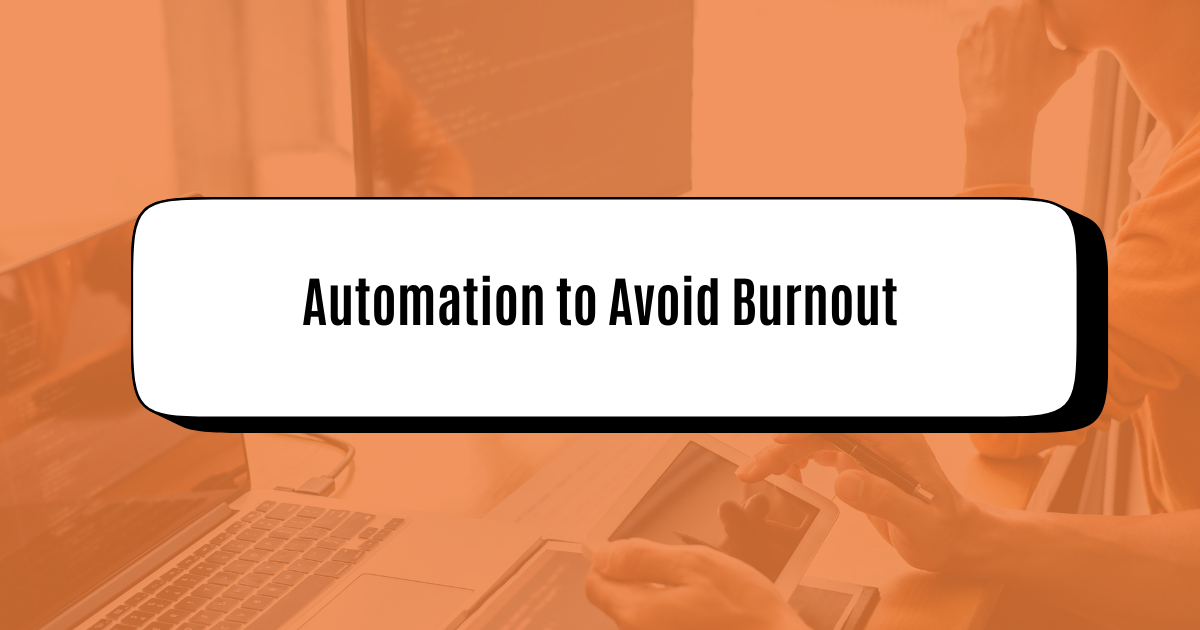Running a short-term rental business often starts as a simple side hustle. Hosts begin with one property, handle guest messages personally, and coordinate cleaning schedules on their own. As the business grows to 30 or more properties, these small daily tasks become overwhelming time drains that steal away weekends and evenings.
The most exhausting parts of hosting include answering basic guest questions like WiFi codes and managing housekeeping schedules. These repetitive activities pile up quickly and turn what should be a profitable business into a source of constant stress. Many hosts find themselves working around the clock, losing the freedom they hoped their rental business would provide.
Key Takeaways
- Hosts typically burn out when simple tasks multiply as their property portfolio grows beyond manageable limits
- Guest messaging and housekeeping coordination consume the most unnecessary time for rental operators.
- Technology solutions can handle repetitive work and let hosts focus on business growth and strategy
Understanding Host Burnout
Primary Reasons for Operator Exhaustion
Most hosts begin their journey with just one or two properties as a side business. They often start by renting out their own home and discover the profit potential. Success leads them to expand rapidly, sometimes reaching 30 properties or more.
The problem starts small. Tasks that seemed simple with one property become massive time drains at scale. Guest messages pile up throughout the day and night. Cleaning coordination becomes a complex puzzle. Task management turns into a full-time job.
Weekend messages arrive at midnight. Emergency calls interrupt family time. The business that promised freedom becomes a prison. Hosts find themselves working around the clock, losing the joy they once felt.
Many operators don’t realize better solutions exist. They think being hands-on is necessary. Growth happens faster than systems can handle it.
Two main areas create the biggest problems:
- Guest communication: Simple questions like WiFi codes take valuable time
- Operations management: Scheduling cleaners and maintenance workers becomes overwhelming
Effects on Property Management Business Owners
Burnout impacts hosts in several clear ways. They work extreme hours despite high profit margins. The joy disappears from their business. Tasks that once felt manageable become sources of stress.
Operators lose focus on important activities like strategy and growth. Instead, they spend time on boring, repetitive work. Small problems take hours to solve instead of minutes.
Energy drains happen daily. Every guest issue feels like a major crisis. The phone never stops ringing. Freedom becomes a distant memory.
Physical exhaustion sets in. Hosts work weekends and holidays. They can’t take real vacations. The business owns them instead of the other way around.
Mental fatigue follows. Decision-making becomes harder. Simple tasks feel overwhelming. Creativity and strategic thinking suffer.
Many hosts reach a breaking point. They realize their dream business has become a nightmare. This is when they finally seek solutions to fix their systems and restore balance.
How Automation Transforms Short-Term Rentals
Eliminating Repetitive Daily Tasks
Short-term rental hosts face two main areas that drain their time and energy. Guest messaging creates constant interruptions with simple questions like Wi-Fi codes and check-in details. These basic inquiries seem easy to handle but add up quickly throughout the day.
Operations management presents another major challenge. Hosts spend hours scheduling housekeepers and handling maintenance requests. They must coordinate when cleaners arrive at properties and solve problems that come up during service calls.
These tasks feel necessary but consume valuable time unnecessarily. Many hosts handle these duties manually because they seem manageable at first. However, the workload grows exponentially as properties are added to their portfolio.
Key repetitive tasks that automation can handle include:
- Guest communication for basic information
- Housekeeping coordination and scheduling
- Maintenance request management
- Check-in and check-out procedures
- Payment processing and follow-up
Returning Focus to Business Growth
Automation allows hosts to step back from daily operations and concentrate on bigger picture goals. When repetitive tasks are handled automatically, hosts can return to the strategic work they enjoyed at the start.
Business expansion becomes possible again. Hosts can research new markets, analyze property performance, and plan acquisition strategies. They have time to study market trends and make informed decisions about their portfolio.
Strategic planning takes priority over crisis management. Instead of responding to constant messages and coordination issues, hosts can focus on:
| Strategic Activities | Daily Operations |
|---|---|
| Market research | Answering Wi-Fi questions |
| Property acquisition | Scheduling cleaners |
| Revenue optimization | Maintenance coordination |
| Team building | Guest problem-solving |
The mental energy that once went toward managing small details can now support creative thinking and business development. Hosts regain the freedom and control they originally sought when starting their rental business.
Automation creates space for hosts to work on their business rather than in their business. This shift from reactive management to proactive growth planning makes the difference between burnout and sustainable success.
Major Time Drains for Property Hosts
Communication Issues with Guests
Guest messaging creates one of the biggest time drains for property hosts. Simple questions like asking for Wi-Fi passwords consume far more time than they should.
Hosts find themselves answering the same basic questions over and over. These repetitive messages might seem small at first. But they add up quickly as the business grows.
The problem gets worse as hosts manage more properties. What starts as a few messages becomes dozens of interruptions throughout the day. Hosts receive messages at all hours, including weekends and late at night.
Common guest communication time wasters include:
- Password requests for Wi-Fi and apps
- Basic property information questions
- Check-in and check-out procedure clarifications
- Local area recommendations
- Simple troubleshooting requests
These simple interactions pull hosts away from important business tasks. They also create the feeling that hosts can never truly disconnect from work.
Operations and Cleaning Coordination
Housekeeping and maintenance tasks create the second major time sink for property hosts. These operations are not easy to manage and require constant attention.
Hosts spend excessive time scheduling cleaners between guest stays. They must coordinate timing, check if staff arrived on time, and handle problems that come up during cleaning.
Key operational challenges include:
| Task Type | Time Impact | Frequency |
|---|---|---|
| Cleaner scheduling | High | Every turnover |
| Problem solving | Very high | As needed |
| Progress checking | Medium | Multiple times daily |
| Payment coordination | Medium | Weekly/monthly |
Maintenance issues create even bigger time drains. When problems occur, they don’t just take five extra minutes. They can consume hours and drain mental energy completely.
The coordination becomes exponentially harder as hosts add more properties. Managing one or two cleanings feels simple. But coordinating dozens of turnovers becomes overwhelming without proper systems.
Hosts often get pulled into solving problems they shouldn’t handle directly. They become the go-to person for every small issue that comes up during cleaning or maintenance work.
Challenges in Technology Adoption
Early Management Seems Simple
When hosts begin their short-term rental business, technology solutions feel unnecessary. Most people start as a side business with just one property. At this stage, basic tasks seem easy to handle.
Simple tasks include:
- Answering guest messages
- Scheduling cleaners
- Basic maintenance requests
The workload feels light with only a few properties. Hosts can manage everything themselves without help. This creates false confidence about their ability to handle growth.
As the business grows to 30 properties, these small tasks multiply quickly. What once took minutes now takes hours. The work grows much faster than expected.
Problems compound when:
- Guest messages arrive at midnight and on weekends
- Multiple cleaning schedules need coordination
- Several maintenance issues happen at once
Hosts realize their business controls their time instead of giving them freedom. The tasks that felt manageable become overwhelming burdens.
Missing Knowledge About Available Tools
Many hosts simply do not know better solutions exist. They think manual work is the only way to run their business. This lack of knowledge keeps them stuck in old patterns.
Some hosts believe automation costs too much money. They think only large companies can afford these tools. This belief stops them from looking for affordable options.
Others enjoy being hands-on with their business. They feel good about answering every guest question personally. This pride in direct involvement prevents them from seeking help.
Common misconceptions include:
- Automation requires huge budgets
- Technology is too complex to learn
- Personal service must be completely manual
- Small businesses cannot benefit from automation
The result is that hosts wait until burnout forces them to find solutions. By this point, stress and exhaustion have already damaged their enjoyment of the business.
Building an Effective Tech Stack
Core Tools for Small Property Managers
Hosts managing five to ten properties need a simple setup that covers the basics. A good property management system serves as the foundation. This system should connect to all booking channels and provide one place to handle reservations.
Essential components include:
- Property management system with channel connectivity
- Unified message center for guest communication
- Dynamic pricing software to stay competitive
The property management system acts as the backbone for small operations. It manages bookings and connects different platforms automatically. Most systems today include basic messaging features.
A pricing tool helps hosts adjust rates based on market conditions. This prevents leaving money on the table during busy periods. Small hosts can run successful operations with just these core pieces.
Core Tools for Large-Scale Operations
Hosts planning to manage hundreds of properties need more advanced systems. The basic property management system and pricing tool remain important. However, larger operations require additional layers of technology.
Advanced tech stack components:
| Category | Purpose | Why It’s Needed |
|---|---|---|
| Task Management | Track internal requests | Handle 50+ daily tasks efficiently |
| Field Operations | Monitor cleaning and maintenance | Manage remote team performance |
| Team Communication | Internal messaging | Coordinate multiple staff members |
| Knowledge Base | Centralized information | Store details beyond what one person can remember |
Large operations cannot rely on memory or simple systems. Information must live in accessible places that team members can reference. Internal task systems become critical when dozens of requests come in daily.
Field management tools track whether cleaners and maintenance staff complete their work. These systems monitor timing and handle payment processing. Team communication platforms keep everyone connected across multiple properties.
Selecting Property Management and Pricing Systems
The property management system choice depends on business goals and size. Small hosts should focus on systems with strong channel connections. The unified inbox feature saves time by putting all guest messages in one place.
Pricing tools work best when they integrate smoothly with the chosen property management system. Automatic price updates prevent manual work and missed opportunities. Look for tools that adjust rates based on local market data.
Key selection criteria:
- Channel integration – Connects to major booking platforms
- Message management – Handles guest communication efficiently
- Pricing automation – Updates rates without manual input
- User interface – Easy for team members to learn and use
Different systems excel in different areas. Some property management platforms include basic pricing features. Others require separate pricing software for full functionality.
Test systems before committing to long-term contracts. Many providers offer trial periods to evaluate features. Consider future growth when making selections, as switching systems later creates disruption.
Essential Strategies for Long-Term Success
Choosing Smart Technology Solutions
The tech tools you need depend on your goals and size. Small hosts who want to manage 5-10 properties need a simple setup. A good property management system (PMS) with pricing software will handle most tasks.
A quality PMS gives you one place that connects to all booking sites. It creates a single inbox for messages. The pricing tool helps you stay competitive automatically.
Basic Tech Stack for Small Operations:
- Property management system
- Automated pricing tool
- Unified guest messaging
Larger operations need more advanced tools. Hosts with hundreds of properties require additional systems beyond basic PMS features.
Advanced Tech Stack for Scaling Hosts:
| Tool Type | Purpose | Key Features |
|---|---|---|
| PMS | Booking management | Channel connections, property data |
| Pricing Software | Revenue optimization | Competitive rate adjustments |
| Task Management | Internal operations | Request tracking, team coordination |
| Field Management | On-site operations | Task completion, payment processing |
| Communication Tools | Team coordination | Internal messaging, information sharing |
The PMS becomes your backbone. But it only handles bookings and channel connections. You need separate tools for internal tasks, field operations, and team communication.
Centralized information storage becomes critical as you grow. Data can’t stay in your head anymore. Your team needs access to important details from one location.
Protecting Your Health and Energy
Host burnout happens in a predictable pattern. Most people start with one property as a side business. The work feels manageable at first.
Small tasks like answering guest questions seem easy when you’re small. But these tasks multiply as you add more properties. What takes five minutes with one property takes hours with thirty properties.
Common Burnout Triggers:
- Guest messages at midnight and weekends
- Constant housekeeping coordination
- Chasing incomplete maintenance tasks
- Managing multiple small problems daily
The business that promised freedom ends up controlling your life. Weekend messages drain your energy. Simple requests become overwhelming when they happen constantly.
Many hosts don’t realize better options exist. They think handling everything personally shows good customer service. This mindset keeps them stuck in exhausting routines.
Two Major Time Drains:
- Guest Communication
- Simple questions like WiFi codes
- Repetitive information requests
- After-hours messaging
- Operations Management
- Housekeeping scheduling
- Maintenance coordination
- Task completion tracking
These areas consume unnecessary time and energy. They feel important but can be automated effectively.
Recognition comes too late for most hosts. They wait until burnout hits before seeking solutions. Early action prevents this cycle from starting.
Special thanks to Antanas Perez of Cressco for being our guest on the podcast. Cressco specializes in helping STRs automate and scale.





0 Comments